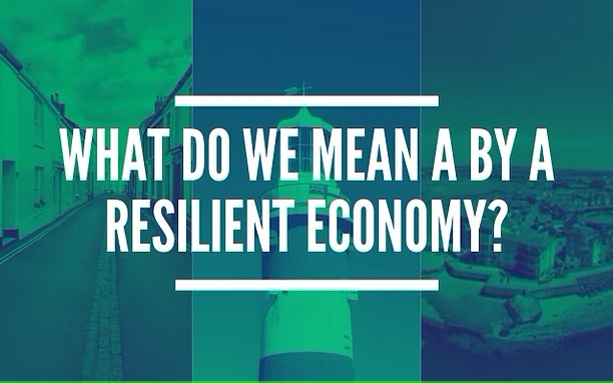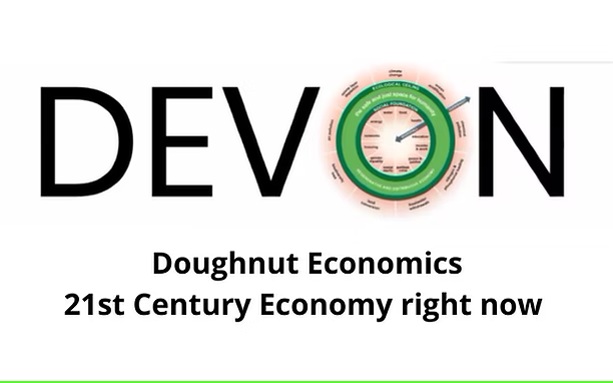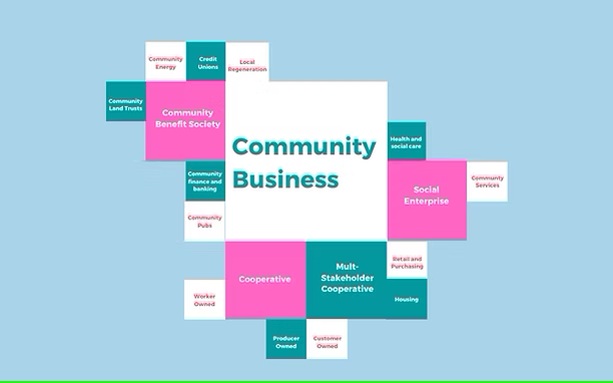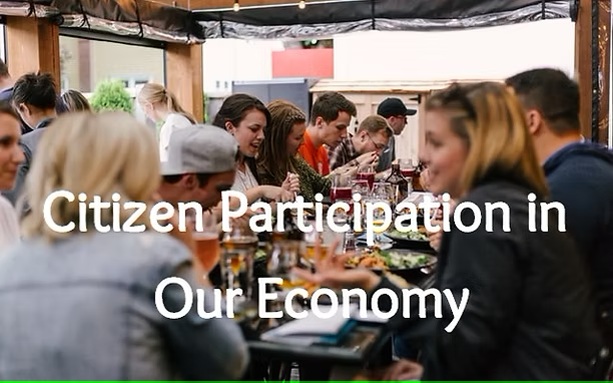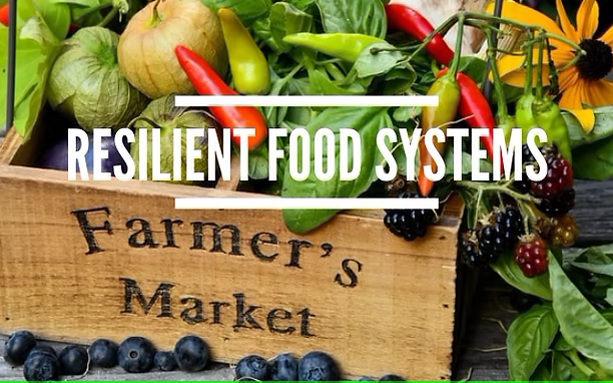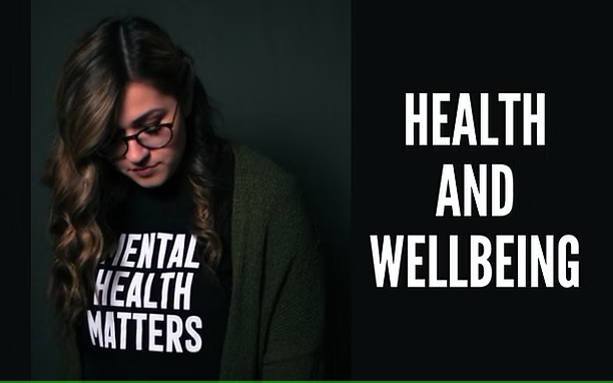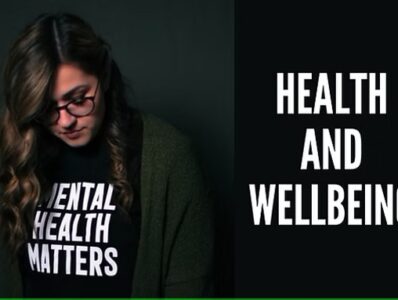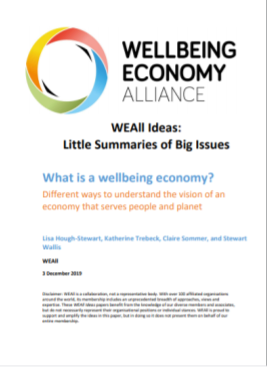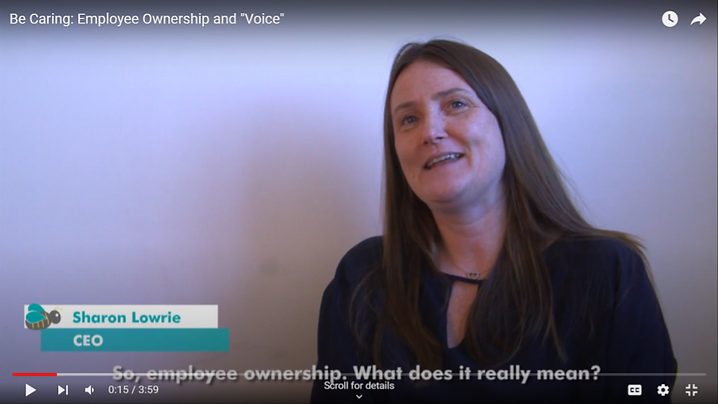Just like an ecosystem, our health and wellbeing is crucial to the functioning of a resilient economy and overall prosperity of our local communities. As philosopher Ralph Waldo Emerson said, “The first wealth is health.”
In the 21st century, economists have started to join the dots between the human biological system and our ability to take part in and be productive in the financial aspects of our economic systems. And now Covid-19 has made it abundantly clear how much we need healthy people with the ability to tend to the ill, tend to the land, and feed the population. And for most people, being in work means is the difference between paying their rent or mortgage, or sleeping on the street. As historian Thomas Fuller put it, “Health is not valued till sickness comes.” The consequences of the pandemic reinforce what we already know: we can’t keep people healthy if they don’t have a roof over their head and food on the table
Just like a kitchen, if you don’t maintain it and keep it hygienic, your health and wellbeing can deteriorate into something that cannot function efficiently, where even carrying out the simplest essential task like feeding yourself or your family becomes problematic.
With so many experiencing the impacts of poverty such as having to use foodbanks just to feed their children, and evictions on the rise (most of us know that moving home is one of the most stressful times of our lives) we know that something must be done to address the quality of jobs and work, the environment we live in, and the services that we can access. We owe it to ourselves and our communities to rethink our economy through the lenses of health and wellbeing. And not a moment too soon. Because in the Covid-19 crisis – despite global risk reports, national independent and government assessment warnings of the high probability of a health pandemic, and advice that we should prepare for the worst whilst addressing the root causes – we did too little too late. The good news is that small changes can make a huge difference to peoples lives.
This section contains inspiring resources from entrepreneurs, experts and creatives about ways to build an economic system that supports health and wellbeing. The ideas and models below can help us build an economic system that can ensure resilient and regenerative communities in Devon and beyond are fit for the 21st century. These resources would suit health and social care workers, (including new entrants to the sector), policy makers, business and social enterprise, those in work, cooperative leaders, local authorities, food campaigners, community groups and individuals looking for ideas, inspiration and expertise to grow a new economy for Devon.
Video (6 mins)
Video case study for Equal Care Coop a multi-stakeholder platform cooperative for in the care sector
Video (1 hour)
The third edition of Mobilising Exeter’s Community Enterprising Spirit brought together people interested and active in bringing new ways of organising care into our communities, where clients get a better deal, but so do the people providing actual care. A care provision that creates better jobs, and tighter communities.
Video (27 mins)
RegenerateDevon summit showcase: Innovation and entrepreneurship in the DNA.
Three case studies of entrepreneurs who have created ground-breaking approaches in the face of challenge. Speakers:
Host – Julie Hawker – Joint Chief Executive – Cosmic
Nick Peres – Torbay and South Devon NHS Foundation Trust
Alison Sallis – CEO – Proper Job
Tony Gorniak MBE – Creative Director – Street Factory
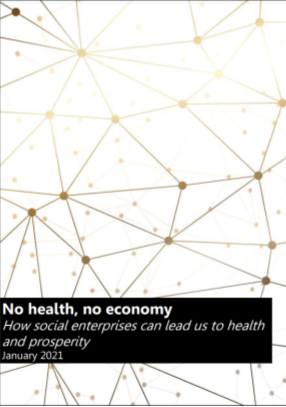
No Health, No Economy paper
Paper from Iridescent Ideas CIC, Plymouth. Summary:
- Health policy and economic policy need to be better aligned – too often they are not
- We need a ‘health in all policies’ approach especially in
economic policy making. - Better alignment can help us tackle inequalities and boost
productivity - Social enterprises are showing the way to a healthier, fairer,
greener, prosperous economy - We need to stimulate and include social enterprises at all
stages of economic policy making
Video (15 mins)
Katherine Trebeck outlines how we can achieve a #JustRecovery from Covid-19 and how Amsterdam City Doughnut research points a way
Katherine Trebeck, Advocacy & Influencing Lead for the Wellbeing Economy Alliance, will set this work in context of a new economic framework and kick off roundtable discussions exploring a way out of the black hole of Coronavirus Pandemic + Financial Depression

Food Exeter
Food Exeter exists to work with others in order to move towards a ‘food future’ for the city which fulfils the following five conditions.
- There is access to nutritious, healthy food for all
- Exeter has a thriving ‘food culture’
- There is a strong, resilient Exeter and Devon food economy
- A sustainable local food system
Exeter’s local food system is resilient and more secure
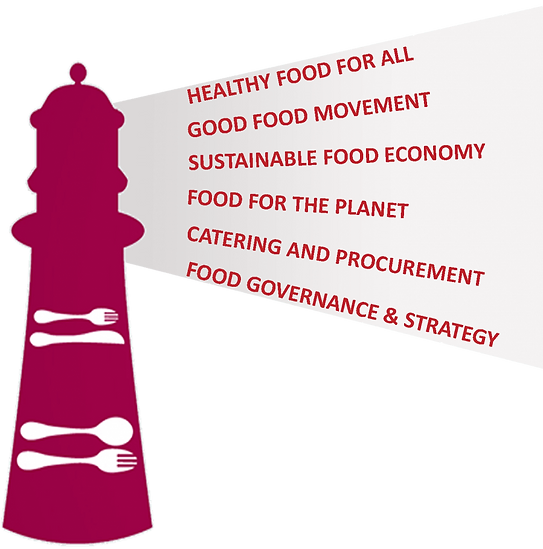
Food Plymouth
Food Plymouth is the City’s recognised Local Food Partnership
A ‘central connecting hub’ for all food-related matters in the City.
Our multi-sector award winning partnership, founded in 2010, comprises a diverse mix of agencies, organisations, businesses, community groups and individual citizens, all working together to actively promote and lobby for healthy, sustainable and affordable food as a driver for positive change.
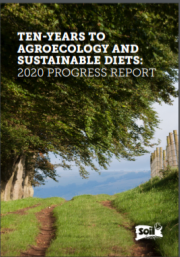
Agroecology and Sustainable Diets report
This Soil Association 2020 report tracks progress in the transition to agroecology and sustainable diets. It looks back over the key events of the past year, and ahead to the next 12 months – assessing the key challenges and highlighting the opportunities that will help secure a better future.
Video (10 mins)
In 2018, Scotland, Iceland & New Zealand established the network of Wellbeing Economy Governments to challenge the acceptance of GDP as the ultimate measure of a country’s success. In this visionary talk, First Minister of Scotland Nicola Sturgeon explains the far-reaching implications of a “well-being economy” — which places factors like equal pay, childcare, mental health & access to green space at its heart — & shows how this new focus could help build resolve to confront global challenges.
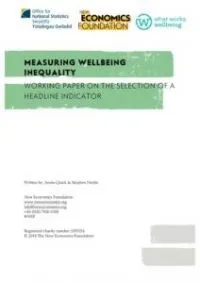
Measuring wellbeing inequality
What are the appropriate indicators of wellbeing inequality?
This working paper presents research commissioned by the Office for National Statistics (ONS) and carried out by the New Economics Foundation (NEF) in collaboration with the What Works Centre for Well-being. NEF was tasked with exploring the strengths and weaknesses of different measures of wellbeing inequality and to make a recommendation of a measure which could be reported by the ONS alongside mean wellbeing.
Knowledge Hub
There is much more to discover in the Knowledge Hub.
